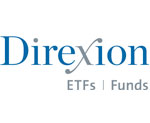Einstein had his troubles convincing the world that his theory of general relativity was correct. As a matter of fact, it took several years and several failed attempts by others trying to prove (or disprove) before it was finally accomplished. After all, you can’t measure the position of a star as the sun is totally eclipsed by the moon any day you wish.
No, he would have had a much easier time with the markets had he had the inclination, patience and willingness to work with something that wasn’t subject to the physical laws of nature. However, I’m sure he would have had the ability to look at the financial system as a whole, and break down the individual components in a number of ways to examine the relationships (or lack thereof) between a variety of varying subsets. Looking from country to country dynamics, region to region and continental comparisons, I’m sure he would have come up with some complex yet logical (at least to some) explanations as to why what happened should have been expected and that something specific can be expected in the future given a specific set of circumstances. In the end, he would have called it the Theory of Market Relatively.
The US markets have done very well in the last 5 years mainly due to a friendly Fed. Arguments can rage on and on around this point but one can be pretty certain that with high interest rates, a lack of any reasonable semblance of a housing market, continued unemployment, and run away federal spending the markets’ performance would have been much worse. And one can be just as surprised that the markets haven’t (as yet) had the bubble burst ala 2008 and 2001 and 1987. Many had predicted the end of the world with the sharp rise in the federal deficit. Throw in a few more plausible scenarios and it would have been expected by most reasonable people. But it didn’t happen. And maybe it won’t happen.
Why? Ah, the $20 trillion question. The answer? Market Relativity. S+D=C Think about it. You have money, you aren’t an idiot so you want your money to make money. Savings accounts are paying close to 0%, short term CD’s aren’t much better. Ten year US Treasury Notes are a whopping 2.5% (or so) and a good Corporate bond is maybe 3%. Fixed Income doesn’t look too good. Kinda makes a 10% 30 year treasury from 1988 look pretty good, but back then you could get a one year CD for 8%, so it was an easy choice. (Pardon the lack of consideration for the investment time horizon question). Real estate is still pretty scary for most investors, precious metals had their run (and maybe it is time to add some??), and alternatives, hedge funds, and commodities are like Chinese Algebra to most folks, just too hard. What is left? Equities!
So you are sitting on a pile of money, wondering which countries’ equities you should choose for you portfolio. Fortunately Einstein had this theory of Market Relativity and more fortunately you remember hearing it at some point. So you think. Which equity market is going to do better relative to the other markets in the world? On a relative basis, which market is the most solid? Russia? Maybe someday but not yet. China? Still a communist influence that scares free people. India? No. Europe? Possibly, but too many unsure components that can rock the boat. Individual European countries? The lack of size and diversity add unnecessary risk. That leaves a whole bunch of emerging and pseudo emerging countries that while possibly appropriate for a small amount in some portfolios, not so for a sizable equity position. Canada? Eh? The US? We have a winner.
Seriously, relative to any other markets, as long as the dollar remains the world currency standard, the US equity markets are more diverse, more well-funded, more stable and more liquid than any other. RELATIVE to any other markets. S+D=C. Strength +Diversity = Capital. Strength and diversity have their own components, and together they attract capital. Now it is fairly certain that if (when) there is another country (region) that can rival the US, and that country (region) has better federal fiscal management, a more favorable business climate, and a better standard of living (ie: lower taxes, better health care, better education, etc) then the US market would not look as good, RELATIVELY.
Why didn’t the US markets burst? Relative to everywhere else, there is not a better choice.
Dave Wagner – President, Active Investment Management LLC in Chicago, IL
 Dave Wagner has been active in the investment management industry for more than 25 years, founding AIM in 2008 to provide viable alternatives to the buy-and-hold discipline for the institutional community. Mr. Wagner has been researching and applying his principles of active management since 1995. Prior to opening his own firm in 2003, Wagner was employed by major brokerage firms for 16 years. Mr. Wagner holds a BA in Mathematics from Wabash College and an MBA from Keller Graduate School of Management.
Dave Wagner has been active in the investment management industry for more than 25 years, founding AIM in 2008 to provide viable alternatives to the buy-and-hold discipline for the institutional community. Mr. Wagner has been researching and applying his principles of active management since 1995. Prior to opening his own firm in 2003, Wagner was employed by major brokerage firms for 16 years. Mr. Wagner holds a BA in Mathematics from Wabash College and an MBA from Keller Graduate School of Management.















